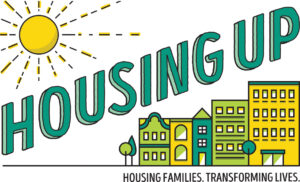This case study features a Housing Up property.

Cutting-edge European sustainable design isn’t generally associated with U.S. affordable housing development projects, but Housing Up, a nonprofit District affordable housing developer, decided to pursue Passive House certification for the Harry and Jeanette Weinberg Commons (Weinberg Commons) and show that healthy, high-performance buildings can be within reach for everyone.
Passive House is among the most rigorous energy efficiency performance standards available today for any building. The certification reflects adherence to a voluntary standard that results in ultra-low energy buildings, which can be made into net-zero buildings with the addition of on-site solar panels. The Passive House Institute US (PHIUS), a U.S.-based certifying organization, bases its standard on five principles: airtightness, ventilation, waterproofing, heating and cooling, and electrical loads. This results in highly efficient buildings that are also incredibly comfortable and quiet for its occupants.
“"At the end of the day, we focused on our goals: ending homelessness for 12 households and providing 24 families with healthy, affordable homes."Christina Peay, Director of Philanthropy & Communications at Housing Up.
Housing Up, formerly Transitional Housing Corporation, has been providing affordable homes to District residents since its founding in 1990. Over time, the organization has come to focus primarily on preservation projects that maintain long-term affordable housing. Christina Peay, Director of Philanthropy & Communications, explains that Housing Up finds the renovation process easier than ground-up new construction from a financing perspective, as things like tax credits and local rent subsidies are already attached to the property. However, she noted that this focus brings development challenges associated with older buildings, such as asbestos and lead remediation and drafty interiors that produce high energy bills.
When Housing up began considering its strategy for what would become Weinberg Commons, the team was very focused on maximizing health and affordability for future residents. There was little they could do to further lower the cost of rent, but the buildings could be retrofitted in a way that limited or eliminated utility costs. Housing Up’s then Director of Affordable Housing Blaise Rastello, began to talk to Michael Hindle, an energy consultant with Passive to Positive and Matt Fine of Zavos Architecture + Design about the feasibility of using passive house building principles for Weinberg Commons.
After reviewing the details, the team realized that this approach would effectively eliminate utility bills for residents and reduce the project’s long-term operating costs, leaving more resources for resident support services. Additionally, Housing Up saw a leadership opportunity. Most projects achieving the certification are new construction single-family homes. Housing Up’s Weinberg Commons would be the first multifamily passive building retrofit in the country. Its success could generate momentum for healthier and more efficient buildings in the affordable housing sector in the District and beyond.
Investors were intrigued by the concept and supportive of Housing Up’s vision, but carrying out that vision required substantial effort. The project site consisted of three, 1960s-era brick and block buildings. Peay explains they were “truly dilapidated” and needed to be completely gutted. Hindle explained the challenge, “Retrofits are inherently more challenging than new construction, in our case mainly the transition from exterior insulation and air-sealing above grade to interior insulation and air-sealing below grade.” To achieve maximum efficiency, the team used techniques including superinsulation, triple-paned windows, and energy-recovery ventilators that ensure a constant supply of clean air with minimal energy usage.
In addition to energy efficiency, the project prioritized healthy buildings. Design choices included continuously filtered fresh air, low-VOC paints and sealants, and formaldehyde-free interior woods and cabinets. The latter improvements are particularly valued by residents who often face pre-existing health conditions and who are at high risk from respiratory illnesses, such as COVID-19.
In the end, the team achieved its goals of receiving PHIUS certification, completing a healthy building retrofit and providing no-cost utilities to residents. With such low energy use, rooftop solar panels now provide nearly all of the electricity needs, allowing Housing Up to absorb the remainder without charging tenants. Hindle attributes much of the project’s success to the shared commitment to the outcome, crediting Rastello and Fine for leadership of the design and development team and the Hamel Construction project manager, Teresa Hamm Modley, for providing leadership and inspiring workers to take pride in meeting the rigorous standards of Passive House Construction.
“At the end of the day, we focused on our goals: ending homelessness for 12 households and providing 24 families with healthy, affordable homes,” says Peay. The project was completed in 2015 and has spurred Housing Up to push for healthier and more sustainable buildings as it simultaneously works to expand affordable housing in the District. The nonprofit is in the early stages of planning its next project, and has noticed that tenants are already asking about making their homes more sustainable. While Passive House certification, especially in a renovation, requires additional investment and commitment, the lessons learned and the reputational boost, will continue to inform how Housing Up carries out its mission.
Building Stats
Address: 5010 Southern Avenue, SE
Building Sq. Ft: 33,095.77 sq. ft (gross floor area)/31,703 sq. ft(site)
Number of Units: 36 total units in three buildings
Original Construction: 1960s
Project Renovation: 2015
Annual Energy Use: 12.67kBtu/sf.yr
Project Team
Owner: Housing Up
Lenders: Local Initiatives Support Corporation, TD Bank
Partners: Weinberg Foundation, DC Department of Behavioral Health, DCSEU, Abel Foundation
General Contractor: Hamel Builders, Inc.
Property Manager: CT Group
Architect: Zavos Architecture and Design
Sustainability Consultant: Passive to Positive
PHIUS+ Rater: Conway Energy

